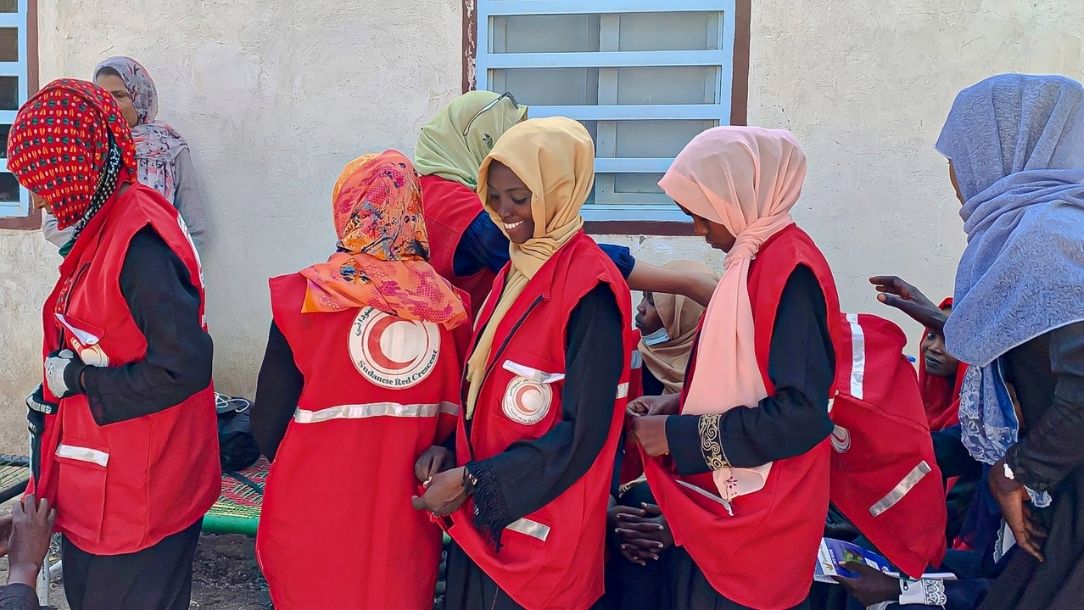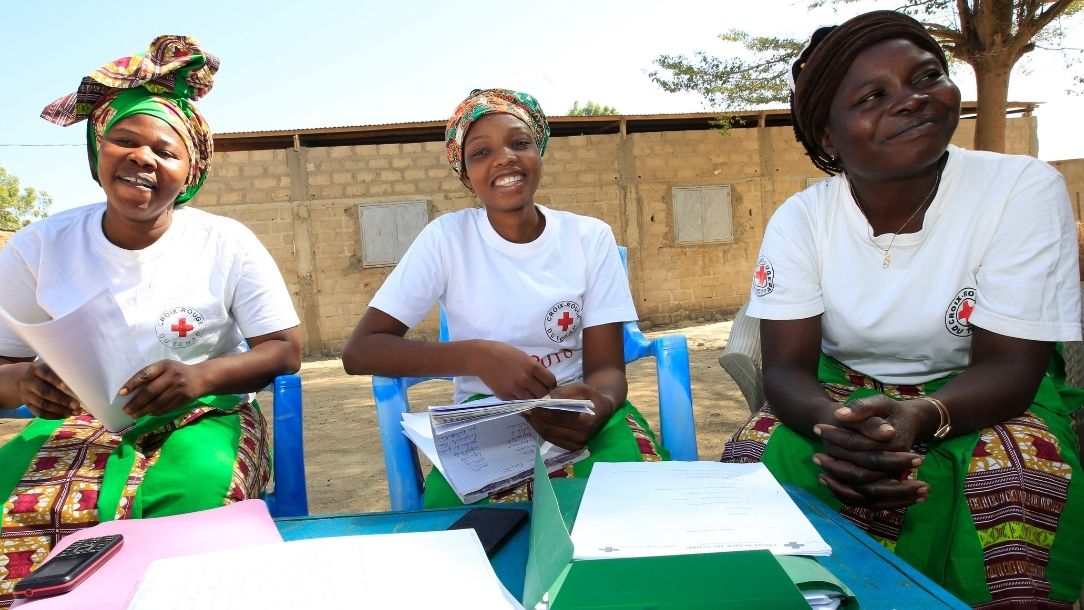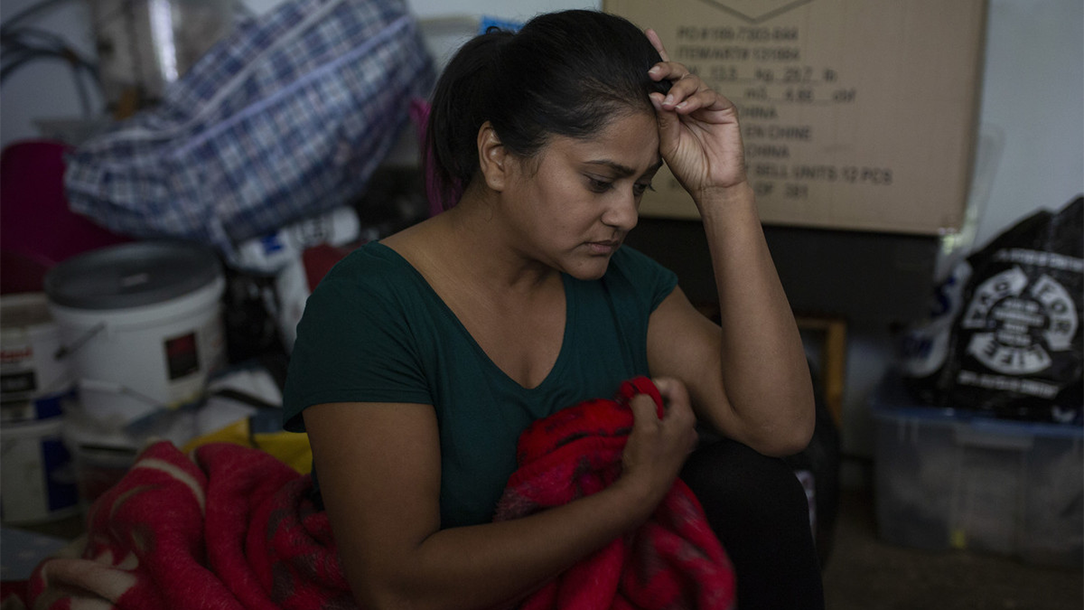“We will never combat violence against women if we do not address the root causes"
Why prevention is at the heart of our work in addressing gender-based violence
Last updated 26 May 2023
Today marks this year’s International Day for the Elimination of Violence Against Women and the beginning of 16 days of activism.
While it’s sad that such a day is needed in 2022, it is nonetheless a day to take action.
This annual campaign has been led by the UN Secretary-General and UN Women for nearly 15 years, aiming to end violence against women and girls around the world.
Here at the British Red Cross, we know from our work at home and overseas that there is still much to be done.
Around the world, we support women and girls who have been through unimaginable traumas.
In Eastern Sudan, there is a high incidence of trafficking and sexual and gender-based violence.
Over the past decade, thousands of migrants and refugees – women and children among them – have travelled through the area on the migratory route.

Sudanese Red Crescent volunteers at Hamdayet Border Reception Centre, Eastern Sudan
PHOTO: Sudanese Red Crescent
Sadly, women and girls making this long and dangerous journey are some of the most at risk of experiencing sexual or gender-based violence.
In Kassala state, one of the first places people on the move reach in Sudan, the Red Cross works with survivors to help them regain their sense of wellbeing, safety and dignity.
The programme, which is led by women for women, was made possible thanks to funds raised by players of People’s Postcode Lottery, and is supported by the British Red Cross, the Danish Red Cross and Ahfad Trauma Center in Sudan.
Sudanese Red Crescent staff and volunteers provide child-friendly and safe places for women in reception centres close to the border, where our teams can identify women and children who have survived sexual and gender-based violence or trafficking and refer them to health centres, safe accommodation, and psychosocial help.
‘Dignity kits’ are also provided, packed with essentials like menstrual pads, bath soap, underwear, detergent powder, and toothpaste. They are simple items we take for granted day to day but for women and girls who might have gone days or weeks without them, they are a lifeline on their first step to recovery.
From there, women and girls can also access legal assistance, recreational activities and skill-building sessions run by the Sudanese Red Crescent.

Members of a Mothers' Club, part of a Red Cross programme that runs in Niger and Chad. PHOTO: George Osodi/British Red Cross
In Niger, where the British Red Cross supports a grassroots project for women called ‘Mothers’ Clubs’, the Niger Red Cross will be participating in the UN’s 16 days of action in the fight for a world free of violence against women.
The Mothers’ Clubs, supported by funds raised by players of People's Postcode Lottery, are community groups that provide training for women, helping them to earn and save money. Each club is a group of between 20 and 25 women, engaged as Red Cross volunteers. They meet regularly to discuss health, nutrition, hygiene and gender-based violence with other women in their community.
Receiving seed funding from the Niger Red Cross, the Mothers’ Clubs can build collective funds, from which they can borrow money to start their own small businesses. Through the clubs, which are also being ran in neighbouring Chad, the women can become breadwinners and local leaders, with the potential to transform the futures of both their own families and the wider community.
Preventing violence against women in the long run
While part of the work to address gender-based violence is supporting those affected by it, we know that education and prevention is at the heart of the solution.
“We will never combat gender-based violence and violence against women if we are not addressing the root causes of the problem,” says Marina Tondo, humanitarian sexual and gender-based violence advisor at the British Red Cross.
“Therefore a large part of our work is focused on prevention – starting from the Red Cross Red Crescent volunteers themselves and focusing on local communities, including men and boys. Gender-based violence prevention for us is a must, even if you have a response programme. Real, sustainable change is not going to happen if you don’t focus on that.”
In Niger so far this year, we have educated 681 community members on gender-based violence.
Meanwhile in Sudan, the Red Crescent volunteers have reached 810 people in the last three months through community awareness sessions, which have included discussions around different types of sexual and gender-based violence and its consequences, and human trafficking.
Young change-makers deliver the gender-based violence and trafficking awareness training to their communities, supporting survivors as well as starting conversations and breaking the stigma around these sensitive issues. In the past few months alone, we have trained almost 40 young people living in refugee camps in the region who will go on to sensitise their communities.
Talking about gender-based violence is the first step to putting and end to it. If you'd like to spread the word, head to our Instagram to share our posts, and don't forget to check out the hashtag #endviolenceagainstwomen.
To learn more about our work against sexual and gender-based violence, click here.

What is violence against women?
Learn more about what gender-based violence is, and how the British Red Cross is working with survivors

